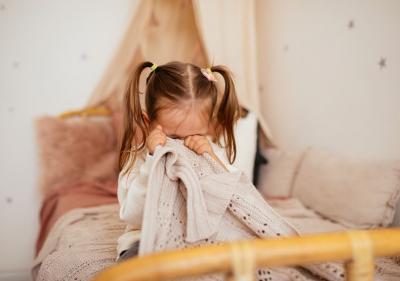It seems that ‘Mum’ isn’t the word when it comes to PC these days.
I recently wrote a feature article about a business that sells pre-loved baby clothes. The woman, who co-owns the business with her husband, was the interviewee for the piece. The sub-heading chosen for the eight hundred word feature referred to her as a ‘Mum’.
A female reader politely asked me why the woman featured in the piece was defined as a ‘Mum’ instead of a ‘woman’? Why hadn’t the word ‘entrepreneur’ been used? She made the point that men are generally not referred to as ‘Dads’ in articles about their businesses.
I took the point on board and reviewed what I had written. In the body of the article, words like ‘business’, ‘enterprise’, ‘entrepreneur’ and ‘aspirations’ were used. The word ‘Mum’ was used once. I was satisfied that the piece was balanced.
But the reader’s comments certainly gave me food for thought.
Do some women have an aversion to the label ‘Mum’? Do we associate the word ‘Mum’ as being inferior to other labels that are either placed upon us or that we wish to place upon ourselves?
If, for argument's sake, we, as women, are opposed to terms related to maternal roles, are we unknowingly widening the gender gap by creating an invisible faction between ‘women who are labelled as Mums’ and ‘women who are perceived to be more valuable’? If we own the label ‘Mum’, that suggests that we are entitled to define what ‘Mum’ means.
Diplomacy skills are fine-tuned by Mums. Not because we need to reason with our children. I have been a MIT (Mum in Training) for two years now and I have learned that children are wonderfully insane and selectively deaf, hence, there is little, to no room for negotiation. I’m referring to diplomacy rendered towards other adults.
Once one starts caring for a child, other adults will start to comment, without invitation, on your very existence; your choice to return to work; your choice to stay at home; your choice to change career; how long it’s taken you to lose your baby weight; how thin you’ve become since you started the adoption process; that you should stop your child from sucking their thumb because they’ll look like Bugs Bunny in no time; why is your baby licking the handlebar of the supermarket trolley. Don’t you Mums grow an extra set of eyes once you become a parent? I have yet to see a news headline where a Mum has been arrested for maiming a member of the general public because someone stuck their nose in where it wasn’t wanted. Mums build up an armoury of one liners, gentle responses or excuses in order to allay hostility.
Mums are also multi-skilled work machines, inside the home and out. In July 2013, Ernst and Young (Australia) published a report entitled ‘Untapped opportunity – The role of women in unlocking Australia’s productivity potential’. Part of the report looked at the productivity of women who work flexible hours to accommodate the needs of their families. The report found that these women waste less time, are more productive and have more clarity over their career direction than both their male and female counterparts who do not work flexible hours.
Per the report;
“Women in flexible roles are often accused of ‘not pulling their weight’ and can be excluded from communications about what is happening in the organisation or from receiving invitations to events”.
“Organisations should introduce or expand flexible work options to attract and retain highly motivated, productive women. There is a risk that women in flexible roles are side-lined from career-making roles, opportunities and promotion, rather than being rewarded for their increased productivity”.
I think it is fair to assume that a large proportion of women who work in flexible roles are ‘Mums’. Why not champion a positive definition of the label ‘Mum’ – productive, organised, affectionate, focused, intelligent, witty, collaborative, engaged, a leader. A matriarch. The very definition of a matriarch is ‘an older woman who is powerful within a family or organisation’. I think I’d rather be called a matriarch or Mum than an entrepreneur.
Word on the street is that nine out of ten start-ups fail due to factors such as bankruptcy, lack of profitability, low return on start-up capital and lack of continued, long term growth. Fadò fadò, Mums ran households on tight budgets during austere economic climates, with no proper modern conveniences and little to no government support. Along with raising future taxpayers and upstanding members of society, the role of ‘Mum’ has undoubtedly changed throughout the course of history. But there is no denying, in my mind, that the words ‘Mum’ and ‘resilience’ are directly correlated
Whether you have a child or not, we, as women, are primarily responsible for how we define ourselves. The more positively we define ourselves, the clearer our objectives and messages become.








